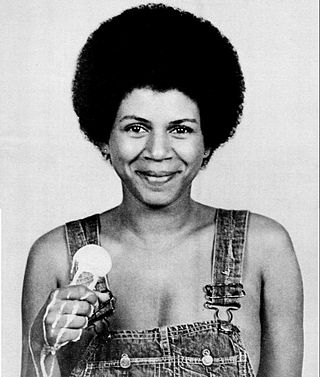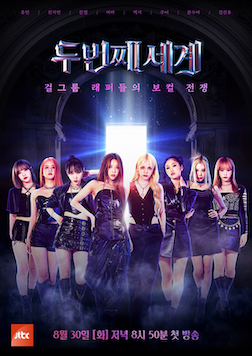Soprano is the highest female singing voice or the highest voice part in a singing group.
Contents
Soprano(s) may also refer to:
Soprano is the highest female singing voice or the highest voice part in a singing group.
Soprano(s) may also refer to:

A castrato is a male singer who underwent castration before puberty in order to retain singing voice equivalent to that of a soprano, mezzo-soprano, or contralto. The voice can also occur in one who, due to an endocrinological condition, never reaches sexual maturity.
Treble may refer to:

Maria Callas was an American and Greek soprano and one of the most renowned and influential opera singers of the 20th century. Many critics praised her bel canto technique, wide-ranging voice and dramatic interpretations. Her repertoire ranged from classical opera seria to the bel canto operas of Donizetti, Bellini, and Rossini, and further to the works of Verdi and Puccini, and in her early career to the music dramas of Wagner. Her musical and dramatic talents led to her being hailed as La Divina.
A soprano (Italian pronunciation:[soˈpraːno]) is a type of classical singing voice and has the highest vocal range of all voice types. The soprano's vocal range (using scientific pitch notation) is from approximately middle C (C4) = 261 Hz to "high A" (A5) = 880 Hz in choral music, or to "soprano C" (C6, two octaves above middle C) = 1046 Hz or higher in operatic music. In four-part chorale style harmony, the soprano takes the highest part, which often encompasses the melody. The soprano voice type is generally divided into the coloratura, soubrette, lyric, spinto, and dramatic soprano.
A countertenor (also contra tenor) is a type of classical male singing voice whose vocal range is equivalent to that of the female contralto or mezzo-soprano voice types, generally extending from around G3 to D5 or E5, although a sopranist (a specific kind of countertenor) may match the soprano's range of around C4 to C6. Countertenors often have tenor or baritone chest voices, but sing in falsetto or head voice much more often than they do in their chest voice.
The musical term alto, meaning "high" in Italian, historically refers to the contrapuntal part higher than the tenor and its associated vocal range. In four-part voice leading alto is the second-highest part, sung in choruses by either low women's or high men's voices. In vocal classification these are usually called contralto and male alto or countertenor.
A contralto is a type of classical female singing voice whose vocal range is the lowest female voice type.

Singing is the act of creating musical sounds with the voice. A person whose profession is singing is called a singer, artiste ,vocalist and rapping. Singers perform music that can be sung with or without accompaniment by musical instruments. Singing is often done in an ensemble of musicians, such as a choir. Singers may perform as soloists or accompanied by anything from a single instrument up to a symphony orchestra or big band. Many styles of singing exist throughout the world.
Falsetto is the vocal register occupying the frequency range just above the modal voice register and overlapping with it by approximately one octave.

The whistle register is the highest register of the human voice, lying above the modal register and falsetto register. This register has a specific physiological production that is different from the other registers and is so called because the timbre of the notes that are produced from this register is similar to that of a whistle.
A male soprano or boy treble is a young male singer with a voice in the soprano range, a range that is often still called the treble voice range no matter how old.
Vocal range is the range of pitches that a human voice can phonate. A common application is within the context of singing, where it is used as a defining characteristic for classifying singing voices into voice types. It is also a topic of study within linguistics, phonetics, and speech-language pathology, particularly in relation to the study of tonal languages and certain types of vocal disorders, although it has little practical application in terms of speech.
Passaggio is a term used in classical singing to describe the transition area between the vocal registers. The passaggi (plural) of the voice lie between the different vocal registers, such as the chest voice, where any singer can produce a powerful sound, the middle voice, and the head voice, where a penetrating sound is accessible, but usually only through vocal training. The historic Italian school of singing describes a primo passaggio and a secondo passaggio connected through a zona di passaggio in the male voice and a primo passaggio and secondo passaggio in the female voice. A major goal of classical voice training in classical styles is to maintain an even timbre throughout the passaggio. Through proper training, it is possible to produce a resonant and powerful sound.
The Voice may refer to:
Shade, Shades or Shading may refer to:
A voice type is a classification of the human singing voice into perceivable categories or groups. Particular human singing voices are identified as having certain qualities or characteristics of vocal range, vocal weight, tessitura, vocal timbre, and vocal transition points (passaggio), such as breaks and lifts within the voice. Other considerations are physical characteristics, speech level, scientific testing, and vocal register. A singer's voice type is identified by a process known as voice classification, by which the human voice is evaluated and thereby designated into a particular voice type. The discipline of voice classification developed within European classical music and is not generally applicable to other forms of singing. Voice classification is often used within opera to associate possible roles with potential voices. Several different voice classification systems are available to identify voice types, including the German Fach system and the choral music system among many others; no system is universally applied or accepted.

Vocal pedagogy is the study of the art and science of voice instruction. It is used in the teaching of singing and assists in defining what singing is, how singing works, and how singing technique is accomplished.
There is no authoritative system of voice classification in non-classical music as classical terms are used to describe not merely various vocal ranges, but specific vocal timbres unique to each range. These timbres are produced by classical training techniques with which most popular singers are not intimately familiar, and which even those that are do not universally employ them.

The twenty-third season of the American reality television series The Voice premiered on March 6, 2023, on NBC. The season is presented by Carson Daly, who returned for his twenty-third season as host. The panel of coaches for the season consists of Blake Shelton, who returned for his twenty-third and final season as a coach; returning coach Kelly Clarkson, who returned for her ninth season after a one-season hiatus; and debuting coaches Chance the Rapper and Niall Horan.

Second World is a South Korean reality competition program created by JTBC. It premiered on JTBC on August 30, 2022, and aired for four months over a total of 10 episodes. The premise of the show involves eight female K-pop rappers competing against each other to showcase their vocal abilities. The winner was Moonbyul, with Exy finishing as runner-up.